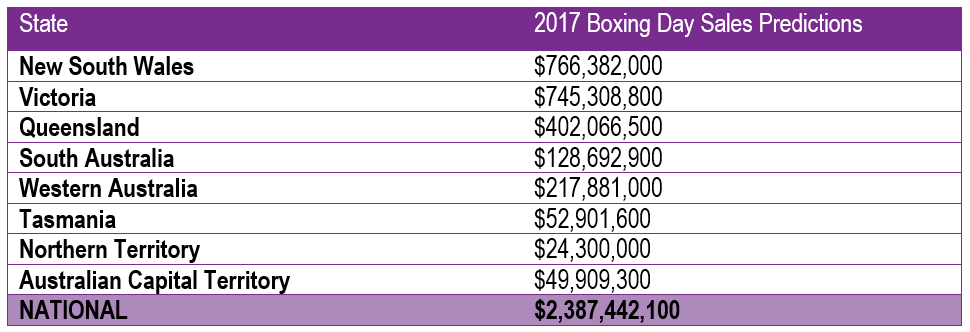
WITH the Australian retail industry employing over 10 percent of the total working population, the Australian Retailers Association (ARA) strongly believe that casual workers and their flexible hours are crucial to the survival of retail.
Russell Zimmerman, Executive Director of the ARA, said restricting casual employment would only bring further challenges to Australian retailers who are already facing a difficult operating environment.
“With the Christmas period coming to an end, and crowds of shoppers entering stores across the country during increased trading hours, the flexibility of casual retail employees is crucial,” Mr Zimmerman said.
“Last week we saw foot-traffic increase by 13 percent year-on-year, and without the flexibility of casual employees, Australian retailers would not have been able to staff their stores adequately during the busiest time of the year.”
The ARA believe retailers see employees as a vital part of their business, and therefore know retailers would be happy to offer a fixed number of hours to part-time employees, however Mr Zimmerman continues to stress the importance of flexibility needed in the sector.
“If the unions want permanent employment, then we would need to see more flexibility around the hours of work, and the notification period of roster changes for part-time employees,” Mr Zimmerman said.
“Under the current General Retail Industry Award (GRIA) retailers are restricted in their ability to offer additional hours to part-time employees, and must provide part-time employees seven days written notice if there will be any changes to the roster.
“With unpredictable trading hours in the industry, retailers need to be able to add hours to staff without paying overtime penalties, especially during busy trading periods like Christmas.”
The ARA understands from various retailers that the majority of casual staff enjoy the flexibility in choosing their own hours, and would like to maintain their casual loading as casual staff are adequately compensated for their type of employment.
“Last minute changes always arise in retail and if retailers need to provide their staff seven days notice for each change to the roster, the sector will begin to suffer,” Mr Zimmerman said.
“With ongoing challenges affecting the retail industry and rising energy costs, small and medium retailers will not have the capability to give the required notice to part-time employees and would then end up staffing their stores themselves.”
The ARA believe the existing GRIA provisions around part-time employees and the inefficiencies around Enterprise Bargaining Agreements (EBA)s emphasise the necessity of casual employees.
“This ploy is just another example of the unions losing the fight before the Fair Work Commission,” Mr Zimmerman said.
“The unions already ran a case to convert casual retail employees to permanent retail employees after six months, and the Full Bench of the Fair Work Commission assessed the case and unanimously rejected it.
“The unions need to understand the Fair Work Commission was established as the independent umpire, by former Prime Minister Julia Gillard, when she was Minister for Employment, and the unions must accept the decision of the Full Bench,” Mr Zimmerman said.
About the Australian Retailers Association:
Founded in 1903, the Australian Retailers Association (ARA) is the retail industry’s peak representative body representing Australia’s $310 billion sector, which employs more than 1.2 million people. The ARA works to ensure retail success by informing, protecting, advocating, educating and saving money for its 7,500 independent and national retail members throughout Australia. For more information, visit www.retail.org.au or call 1300 368 041.
ends

 How to resolve AdBlock issue?
How to resolve AdBlock issue? 


